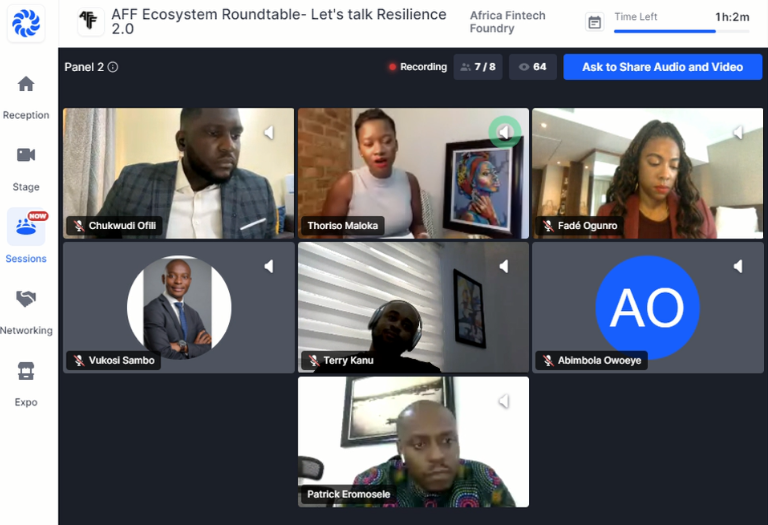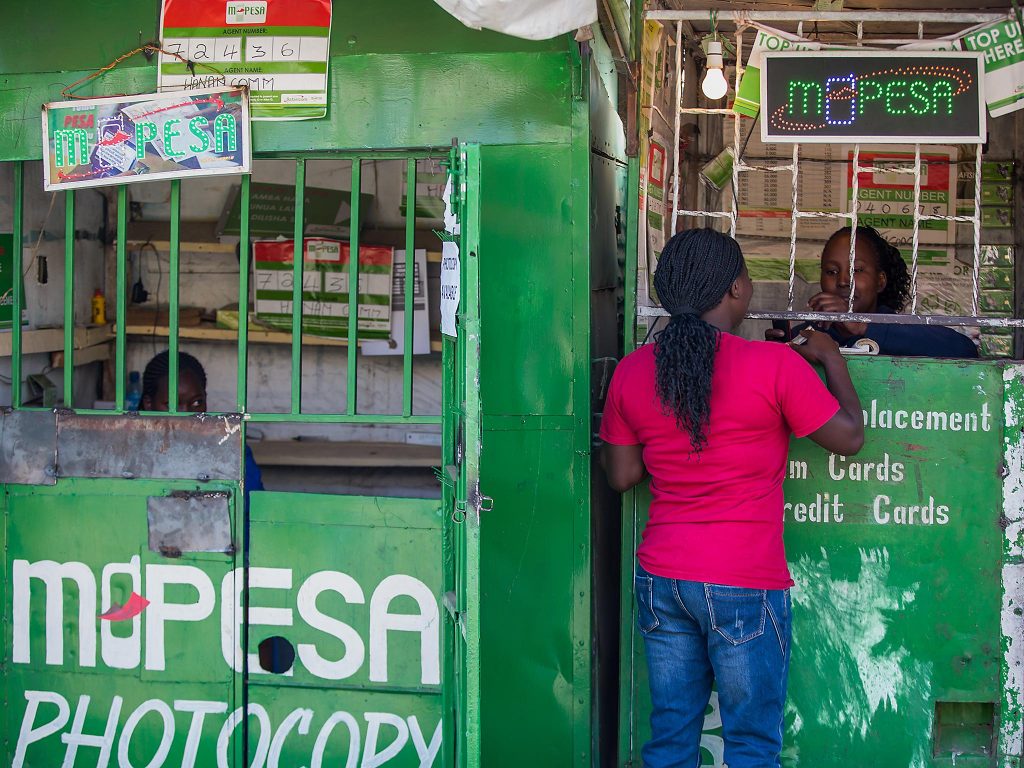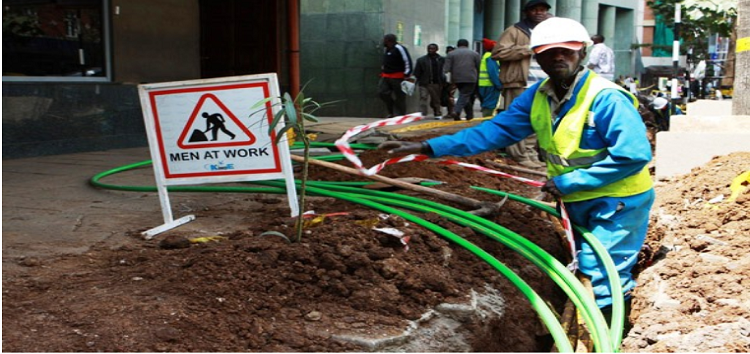The Africa Fintech Foundry (AFF) Ecosystem Roundtable event held virtually on Friday, with over 1,000 attendees.
Powered by Access Bank and SystemicLogic, the online event themed “Let’s talk Resilience 2.0” brought together thought leaders and experts in the African tech space.
Speakers at the event include Chief Partnerships Officer at PiggyVest, Terry Kanu; Senior Special Advisor (SSA) to the Lagos State Governor on Science & Technology, Saheed Balogun; Divisional CEO at Interswitch Group, Akeem Lawal; CEO of Bookings Africa Fade Ogunro; and CEO at Datannovate, Anthony Uwanogho.


There were panel discussions on issues surrounding financial inclusion, broadband penetration and other emerging technologies. Here are the major takeaways from the event.
Fintechs Play a Major Role in Driving Financial Inclusion
Millions of Africans, especially those living in remote areas cannot access financial services provided by traditional banks. Hence, fintech solutions are created to grant more people access to financial products.


Terry Kanu, Chief Partnerships Officer at PiggyVest noted the proliferation of fintech solutions in the past couple of years but maintained that promoting financial inclusion remains the target.
There has been an explosion in the fintech space over the past five (5) years and it has accelerated within the past year. We have seen that more people are looking to embrace financial technology.
Terry Kanu
“M-Pesa in East Africa is the holy grail of payments for any company in Africa. We in payments hope to achieve what M-Pesa has achieved in Kenya,” he added.
With over 30 million subscribers, M-Pesa’s mobile money service has helped Kenya achieve up to 83% financial inclusion. On the other hand, Nigeria’s financial inclusion rate stands at 50%, only growing by 3% since 2012.
Adeleke Alex- Adedipe, Managing Partner at Duale Ovia & Alex-Adedipe Law firm also highlighted the role of fintech companies in accelerating financial inclusion.
“Non-banks give an opportunity for greater financial inclusion. It does allow for more accessibility and gives room for us to achieve that ultimate goal of ensuring that we bank more bankable people within the system,” he said.
Broadband Expansion is Key
Nigeria has a significant broadband infrastructure deficit and this has inhibited efforts to advancing financial inclusion across the country.


Panellists at the AFF event stressed that expanding broadband penetration is necessary for the extension of financial services to unserved and underserved regions.
SSA to Governor Babajide Sanwo-Olu on Science & Technology, Saheed Balogun disclosed efforts by the Lagos state government to address infrastructure deficit and provide high-speed connectivity for telcos. He said the government is deepening broadband with over 3,000 km of fibre dots in the first phase to be completed this year.
Commenting on whether the government was doing enough to widen broadband access, Datannovate CEO, Anthony Uwanogho opined that there is the need for more high speed fibre infrastructure to complement fixed wireless technology.
I would like to see that last mile investment. Once we can say okay, this is not about money anymore but about the people, and this is where the government, the telcos and the NCC come in. The Government’s plan for rollouts sadly doesn’t include any of the initiatives around how we can get that last mile going.
Anthony Uwanogho
“Apart from the about 5% of us living in Lagos, the rest of the country need access to internet services to leverage it for innovation,” he added.
While there have been financial commitments made by the government towards the improved rollout of fibre optic cables, much doesn’t seem to have been done when it comes to actual disbursement and implementation.






